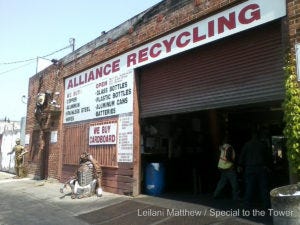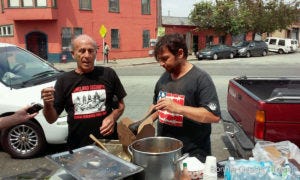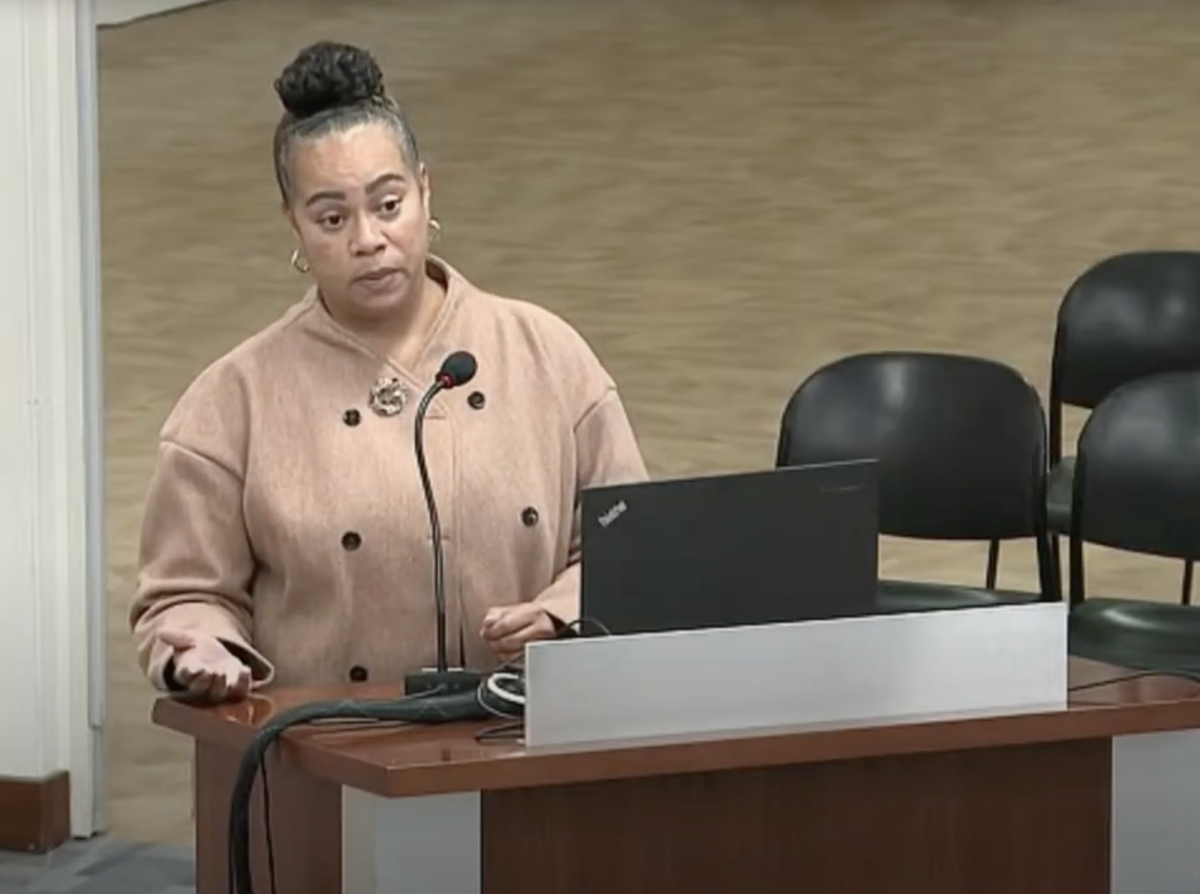A Laney Tower analysis of the Alliance Metals recycling center shutdown
Whether thought of as a beloved institution, a blight on the neighborhood, or a lifeline for those who counted on it for survival, Alliance Metals, located at 3426 Peralta St., closed its doors for the last time on Saturday, Aug. 22. The controversial recycling center that opened in the 1980s was the only such facility in West Oakland that accepted walk-up customers pushing shopping carts. Allowing walk-up recycling created problems between the city and Alliance Metals.
Neighbors complained that metal objects were often stolen from their yards. They blamed the recyclers. They claimed the recyclers blocked the city streets and sidewalks. Many citations were given out by the Oakland Police Department for these minor infractions.  Alliance Metals had been operating under a conditional use permit, which can place restrictions on how or when a business can operate, so when it closed no other recycling center was allowed to open on that site.
Alliance Metals had been operating under a conditional use permit, which can place restrictions on how or when a business can operate, so when it closed no other recycling center was allowed to open on that site.
According to the East Bay Express, the owners of the facility, Lance Finkle and Joe Zidak, decided to close their doors rather than pay the $1,000-a-day fine that would have been imposed by the city had they continued operations.
The Express article noted that although Alliance Metals’ attorney, Rena Rickles, informed city officials of a state law prohibiting discrimination against walk–up customers, “representatives from the City Administrator’s Office made it clear that so long as Alliance accepted walk-ups, there would be problems.”
The city responded that although walk-up recycling was legal, walk-up customers with shopping carts would not be tolerated.
Amir Soltani’s documentary “Dogtown Redemption,” which followed the lives of three West Oakland recyclers, has brought widespread attention to Alliance Metals. Recycling is portrayed as a way for people who have no other means of making a living to survive. The Express article estimated that nearly 400 walk-up customers a day used the facility. Oakland has been greatly affected by the tech boom and resulting changes in the economy. Housing prices in Oakland have skyrocketed. Many of Alliance’s clients rely on recycling as their only source of income. One client, who preferred to remain nameless, said he made enough money recycling to survive, but he was worried about what would happen when the center closed because he did not have a vehicle to get to another recycling center. He didn’t know what he was going to do. Many people share his story.
Oakland has been greatly affected by the tech boom and resulting changes in the economy. Housing prices in Oakland have skyrocketed. Many of Alliance’s clients rely on recycling as their only source of income. One client, who preferred to remain nameless, said he made enough money recycling to survive, but he was worried about what would happen when the center closed because he did not have a vehicle to get to another recycling center. He didn’t know what he was going to do. Many people share his story.
It is hard to fault residents for wanting to improve their neighborhoods. It is hard for property owners to be upset when their property values are on the rise. No one wants to have their items stolen. No one who has things to protect wants them damaged or stolen. But at the same time, where does humanity fit in? What is more important — people or money? There are ethical concerns that the city does not seem to be taking into account. People are struggling.
According to Alliance Metals’ website, which hasn’t been updated since 2008, it provides both economic and environmental benefits to the community. In 2008, it recycled more than 15 tons of material that would have otherwise ended up in landfills, which saved more that 21,000 trees, almost 1.75 million gallons of oil and almost 8.75 million gallons of water.
No one is arguing about the benefits of recycling. The issue is social justice. Justice for both Alliance’s neighbors and their customers.
Alliance has been accused of buying stolen metal items. Maybe the recycling center could have more strictly enforced the rules about not accepting items that may have been stolen.
Maybe they could have hired security to help make sure the streets and sidewalks weren’t blocked by customers as they approached with their shopping carts. Maybe recyclers going through neighborhood trash cans could have been neater and cleaned up after themselves. Maybe neighbors could have had compassion for those forced to survive however they could.
None of that happened. Since none of that happened and Alliance has closed, the city has suggested that recyclers go elsewhere. This solution does not seem practical. Many recyclers use shopping carts to collect and transport their items. Finding another recycling company that is close enough and accepts shopping cart business will be a daunting challenge.
Not only have many people lost their livelihoods, they have also lost their support network. The East Bay chapter of “Food Not Bombs” fed between 30 and 50 people every week outside Alliance Metals.
No other recycling center offers that.

























